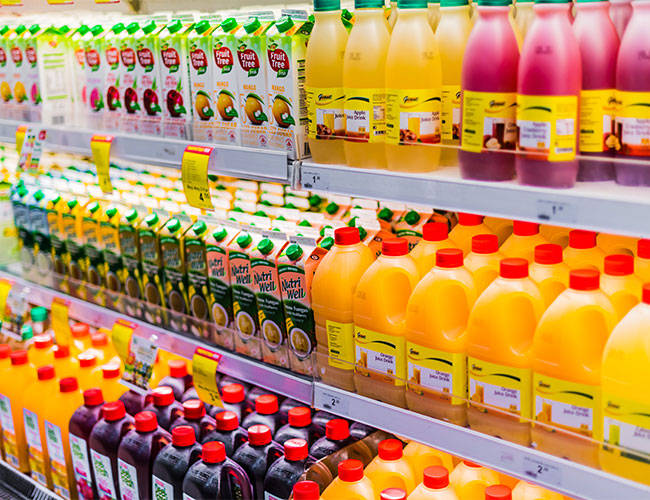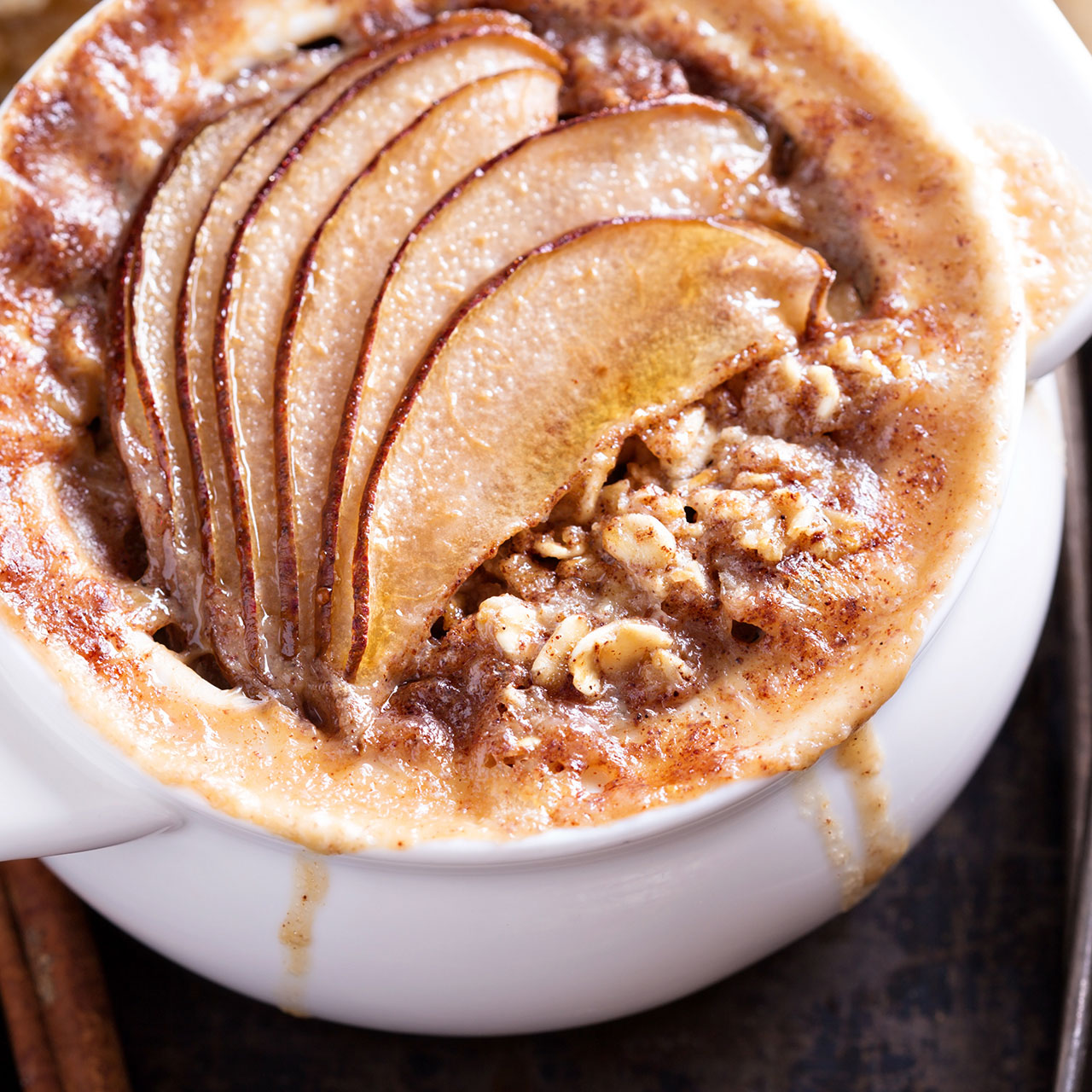There are many things you can do to promote a healthier brain, but one important and commonly overlooked factor is your diet. As it turns out, the foods you eat can significantly impact your cognitive function. While there are many brain-healthy ingredients you can add to your plate to boost your mood, memory, and energy, and potentially even delay age-related diseases, there are also a lot of bad choices that could be taking a toll on your cognitive health. That includes a few unhealthy options that have been linked to brain fog and poor memory.
To highlight a few of these foods that might contribute to poor brain health, we spoke to dietitian and nutritionist Krutika Nanavati. She told us that refined carbs, fried foods, processed meats, artificial sweeteners, sugar-sweetened beverages, and instant noodles are all common culprits. Find all of her expert insight regarding the risks of these foods below.


1. Refined Carbohydrates
We all crave refined carbs like white bread, pasta, rice, and crackers from time to time. They're undeniably delicious! Unfortunately, though, Nanavati warns that these foods "lack fiber and nutrients, causing rapid blood sugar spikes followed by crashes," which could impact your brain function. "These blood sugar fluctuations hinder cognitive function, memory consolidation, and overall brain health," she says. "Chronic consumption can increase the risk of dementia and Alzheimer's disease."
Instead, she recommends swapping these for whole grains like brown rice, quinoa, oats, and whole-wheat bread. "Include complex carbohydrates like sweet potatoes, legumes, and vegetables in your diet for sustained energy and brainpower," she says. Noted!

2. Fried Foods
Fried foods like French fries, onion rings, fried chicken, and all the appetizers your favorite restaurant has to offer can certainly be tempting. The unfortunate truth, though, is that they come with many health risks. As it turns out, that includes hindered cognitive function. "Fried foods are high in unhealthy fats, advanced glycation end products (AGEs), and inflammatory compounds," Nanavati points out. "Chronic consumption can damage brain cells, impair blood flow to the brain, and contribute to cognitive decline." In fact, she notes, "Studies have shown a link between frequent fried food intake and lower memory scores." Yikes!
As an alternative, she recommends baking, grilling, steaming, or air-frying your favorite foods instead of deep-frying them. "Choose healthy fats like avocado and olive oil for cooking and drizzling," she recommends.

3. Processed Meats
Processed meats like sausage, bacon, hot dogs, and deli meats are a common part of the American diet, but they can also take a serious toll on your body and brain when consumed in excess. That's because, as Nanavati tells us, they're "loaded with saturated fat, sodium, and nitrites, all linked to inflammation and chronic diseases." She says that "these additives can damage blood vessels, reduce blood flow to the brain, and contribute to cognitive decline," warning that "studies have shown a correlation between high processed meat intake and an increased risk of dementia."
Luckily, there are many fantastic alternatives that are not only delicious, but also much better for your brain. "Opt for lean protein sources like fish, chicken, beans, lentils, and tofu," Nanavati recommends. "Choose fresh, unprocessed meats whenever possible and limit your intake of processed meats."

4. Artificial Sweeteners
We all know that consuming too much sugar could lead to a range of health complications. Many people turn to artificial sweeteners as an alternative. However, these sweeteners come with many risks of their own. Nanavati says poor brain health could be one of those risks. "Artificial sweeteners like aspartame, sucralose, and saccharin are often found in diet sodas, sugar-free candies, and processed foods," she says. "While they may be calorie-free, artificial sweeteners can disrupt gut bacteria, alter brain chemistry, and potentially impact cognitive function. Some studies suggest a link between artificial sweetener use and memory problems."
So, what's your best option? "Reduce your overall sugar intake and rely on natural sweeteners like fruits, honey, or maple syrup in moderation," Nanavati says. "Opt for unsweetened beverages and whole foods over processed options with artificial sweeteners."

5. Sugar-Sweetened Beverages
Speaking of sweetener... sugar is another major culprit to look out for. This is true for many reasons, but you may not have considered the ways it could impact your brain. "An overabundance of sugar negatively impacts glucose metabolism in the brain, which in turn impairs memory, learning, and cognitive function," Nanavati warns. "High sugar intake leads to spikes and crashes in blood sugar levels, impacting brain cell communication and impairing neurogenesis (the creation of new brain cells)."
All sugary foods can take these tolls on your brain, but it's especially careful to be wary of sugary beverages, which can easily add an abundance of sugar to your diet without you giving it a second thought. "Studies have linked sugary drinks to decreased cognitive performance and brain volume shrinkage," Nanavati notes.
Instead of indulging in these sweet choices, she recommends giving "refreshing and hydrating beverages" like unsweetened tea, coffee, sparkling water with citrus slices, homemade fruit-infused water, and diluted fruit juices a shot. Green tea can even be great for your brain thanks to its antioxidant properties.

6. Instant Noodles
Instant noodles are an undeniably tasty, convenient meal that brings many of us back to our college days. Unfortunately, though, they can pose a serious risk to your health when eaten in excess; this is even true when it comes to your brain health. "Loaded with unhealthy fats, refined carbohydrates, and sodium, instant noodles can negatively impact brain function and memory," Nanavati says.
She explains that this instant meal is "typically high in saturated fat, MSG, and artificial flavors," all of which can "harm brain cells, disrupt neurotransmitter function, and contribute to inflammation." The high sodium content is another major red flag, as it can lead to dehydration and impaired cognitive performance.
If you're craving soup but want something healthier, you can cook up your own made with whole grains and vegetables. Nanavati also suggests homemade stir-fries with lean protein and whole grains, salads with protein and a healthy dressing. It might not be the low-effort meal you used to cook up in your dorm—but it'll be much better for you.

The bottom line
Ultimately, of course, many factors play into the health of your brain, and indulging in pasta every now and then won't mean that you're inevitably setting yourself up for Alzheimer's. However, it's important to consider the role that your diet can play in your cognitive health. By steering clear of foods like these as much as possible, you'll certainly be doing your brain a favor in the long run.


























